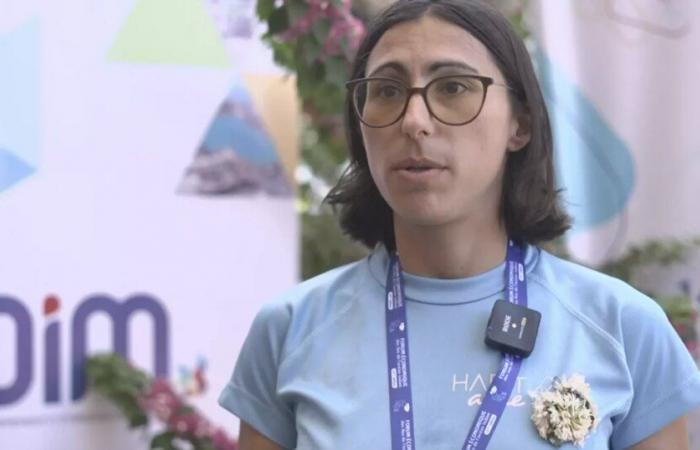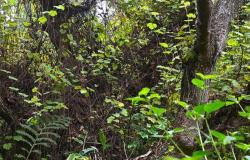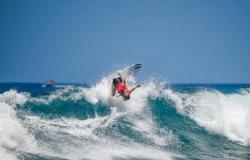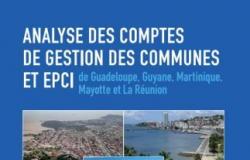At the Indian Ocean Islands Economic Forum, the Habit'Âme company demonstrated how an ecological transition can become an economic opportunity. “ For us, it's not just about recycling. We need to go further, think about how to integrate the cultural and social values of our territories into each innovation », Explained Hannah Dominique, co-founder and manager of the structure. The business leader also underlined the importance of reducing dependence on imports, which are costly and sometimes unsuitable for local realities. “ Transforming our local resources is a way of freeing ourselves from foreign inputs while promoting what we already have on site. “, she explains, while emphasizing the importance of changing the way we look at waste: “ Waste can become a resource. You just need to approach it with creativity and ingenuity. We rely on low-tech and open source solutions that can be adapted to different contexts ».
Habit'Âme, co-founded by Hannah Dominique, has set itself the mission of transforming plastic waste into construction materials for modular housing. In Mayotte, where environmental challenges are particularly pressing, this initiative constitutes a local and innovative response. “ We want to prove that it is possible to transform our waste into valuable resources, while creating housing accessible to all », underlines Hannah Dominique. “ It is a solution for the future that addresses both the housing crisis and the problem of waste management.s”. These homes, designed in easy-to-assemble kits, adapt perfectly to local climatic and environmental constraints. “ Eco-design is our guideline. From the start, we design our products so that they are resource-efficient and can be reused or recycled at the end of their life. ».
The circular economy: a solution for island territories
During this new edition of the FEIOI, which was held in the municipality of Dembeni, the circular economy was highlighted as a response to the environmental and social challenges of the islands. The social, solidarity and circular economy is completely inscribed in the DNA of Habit'Âme. “It’s because we have incredible wealth in our territories, whether it is biodiversity or human resources, which we must do everything we can to protect them. If we protect and promote these assets, we will not only be able to meet our needs, but also export our know-how. », confirms the manager of the structure.
One of the forum's workshops was dedicated to the challenges related to the packaging and storage of products in a tropical climate. How to reduce packaging waste and promote sustainability throughout the supply chain? This was one of the major questions addressed. “ On an island scale, we don't always have all the resources. But by working with our neighbors, we can pool skills and create positive dynamics for the entire region. », suggests Hannah Dominique.
Local solutions to a global problem: this is what emerged from these different discussions. Regional cooperation could therefore find a new purpose here, and the circular economy would be one of its strongest vectors. “ It is a way of thinking and producing that respects our territories, our culture and our environment. Either way, if we don't preserve our biodiversity together, we will have no economic value behind it. ».
More regional cooperation
For Habit'Âme, this Economic Forum was also an opportunity to establish partnerships with other regional players, notably businesses and institutions. “ We are already working with universities and researchers to develop suitable solutions. In Mayotte, we do not yet have all the necessary technical skills, but we are looking for them in the region: in Reunion, Mauritius or even Madagascar ».
Hannah Dominique also sees immense potential in promoting local products: “ Each territory has its comparative advantage. We must learn to better promote our unique resources and turn them into strengths in regional and international markets. “. For Habit’Âme, the objective is not to export the materials themselves, but the model: “ The idea is to share our know-how so that other islands can apply the same principles with their own resources. It’s a way to overcome obstacles and create an impact on a larger scale ».
In the end, Habit'Âme's participation in this 14th edition of the Indian Ocean Islands Economic Forum highlights the potential of local initiatives in the ecological transition. By recovering plastic waste and imagining solutions adapted to island specificities, the company proves that sustainable development and economic impact can go hand in hand. “ Our project shows that it is possible to combine innovation, social inclusion and respect for the environment », concludes Hannah Dominique. “ Through Habit'Âme, we hope to inspire other territories to exploit their own potential and build a more sustainable future ».
The Forum will have made it possible to highlight these different initiatives, thus opening the way to new collaborations, while reinforcing the idea that each island, on its own scale, can play a key role in the transition to a circular economy. Habit'Âme, through its innovative and supportive approach, has already established itself as a key player in this regional transformation.
Read also: 14th edition of the FEIOI in Mayotte: A roadmap for sustainable and responsible fishing?
FEIOI – Mourad Eustratiou, president of the CCI of Mahajanga: “The development of our area will require more economic exchanges between our islands in the Indian Ocean”
FEIOI: In Mayotte, tourism and regional production are banking on winning cooperation in the Indian Ocean
Abby Said Adinani






